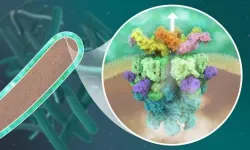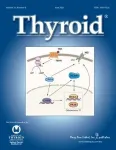(Press-News.org) DURHAM, N.C. - Biomedical engineers at Duke University have demonstrated a tablet-sized device that can reliably detect multiple COVID-19 antibodies and biomarkers simultaneously.
Initial results show the test can distinguish between antibodies produced in response to SARS-CoV-2 and four other coronaviruses with 100% accuracy.
The researchers are now working to see if the easy-to-use, energy-independent, point-of-care device can be used to predict the severity of a COVID-19 infection or a person's immunity against variants of the virus.
Having also recently shown the same "D4 assay" platform can detect Ebola infections a day earlier than the gold standard polymerase chain reaction (PCR) test, the researchers say the results show how flexible the technology can be to adapt to other current or future diseases.
The results appear online on June 25 in Science Advances.
"The D4 assay took six years to develop, but when the WHO declared the outbreak a pandemic, we began working to compress all of that work into a few months so we could explore how the test could be used as a public health tool," said Ashutosh Chilkoti, the Alan L. Kaganov Distinguished Professor and Chair of Biomedical Engineering at Duke. "Our test is designed to be both adaptable and truly point-of-care, and this is clearly a scenario when a portable, fast and cost-effective diagnostic would be most useful."
The technology hinges on a polymer brush coating that acts as a sort of non-stick coating to stop anything but the desired biomarkers from attaching to the test slide when wet. The high effectiveness of this non-stick shield makes the D4 assay incredibly sensitive to even low levels of its targets. The approach allows researchers to print different molecular traps on different areas of the slide to catch multiple biomarkers at once.
The current iteration of the platform also features tiny patterned tunnels that use the physics of liquids to draw samples through the channels without needing any electricity. With just a drop of blood and a drop of biomolecular lubricant, the test runs autonomously in a matter of minutes and can be read with a detector roughly the size of a very thick iPad.
"The detector is battery powered and the test doesn't require any power at all, so you can throw the whole thing into a backpack and truly test at the point-of-care with minimal resources," said Jason Liu, a PhD student working in the Chilkoti lab who designed and built the detector.
In the current study, the researchers tested the D4 assay's ability to detect and quantify antibodies produced against three parts of the COVID-19 virus -- a subunit of the spike protein, a binding domain within the spike protein that grabs on to cells, and the nucleocapsid protein that packages the virus's RNA. The test was able to spot the antibodies in all of the 31 patients tested with severe cases of COVID-19 after two weeks. It also reported zero false-positives in 41 samples taken from healthy people before the pandemic started as well as 18 samples taken from individuals infected with four other widely circulating coronaviruses.
With the pandemic on the downswing in the United States and hundreds of other COVID-19 antibody tests in development, the researchers don't believe this particular test is likely to be deployed in large numbers. But they say that the platform's proven accuracy and flexibility make it a prime candidate for developing into other types of tests or for use in future outbreaks.
For example, the platform could potentially be able to test whether or not people have immunity to the various strains of COVID-19 that continue to emerge.
"There's lots of questions from people about whether or not they're protected from new variants of COVID-19, and our test could answer some of those," said Jake Heggestad, a PhD student working in the Chilkoti lab who developed the chip for the test. "We believe that our platform should be able to distinguish between whether people have antibodies that can neutralize emerging variants of concern or if those antibodies aren't going to be protective against new variants."
The researchers are also working to develop the platform into a test for multiple prognostic markers of COVID-19 that together could indicate whether or not a patient is likely to have a severe case of the disease.
"We're platform builders, so we're working to show ways this technology can be easily modified to do different things," said David Kinnamon, a graduate student who developed the liquid handling system for the test. "We're showing this single platform can work as a diagnostic, assess immune response after infection and predict disease outcome, potentially all at the same time. I don't know of many tests that can do that."
"And it can do all of this on a platform that is super user-friendly and transportable," said Heggestad. "It's one thing to do all of this in a centralized facility like Duke, but it's another to be able to do large-scale testing and get good, sensitive results in remote locations around the world."
INFORMATION:
This research was supported by the National Science Foundation (CBET2029361), the National Cancer Institute (P30-CA014236, R01-CA248491, UH3-CA211232), the Department of Defense (W81XWH-16-C-0219), Defense Academy of the United Kingdom (ACC6010469), and the Combat Casualty Care Research Program (W81XWH-17-2-0045).
CITATION: "Multiplexed, Quantitative Serological Profiling of COVID-19 from Blood by a Point-Of-Care Test," Jacob T. Heggestad, David S. Kinnamon, Lyra B. Olson, Jason Liu, Garrett Kelly, Simone A. Wall, Solomon Oshabaheebwa, Zachary Quinn, Cassio M. Fontes, Daniel Y. Joh, Angus M. Hucknall, Carl Pieper, Jack G. Anderson, Ibtehaj A. Naqvi, Lingye Chen, Loretta G. Que, Thomas Oguin III, Smita K. Nair, Bruce A. Sullenger, Christopher W. Woods, Thomas W. Burke, Gregory D. Sempowski, Bryan D. Kraft, Ashutosh Chilkoti. Science Advances, June 25, 2021. DOI: sciadv.abg4901
CAMBRIDGE, MA - Boosting production of biofuels such as ethanol could be an important step toward reducing global consumption of fossil fuels. However, ethanol production is limited in large part by its reliance on corn, which isn't grown in large enough quantities to make up a significant portion of U.S. fuel needs.
To try to expand biofuels' potential impact, a team of MIT engineers has now found a way to expand the use of a wider range of nonfood feedstocks to produce such fuels. At the moment, feedstocks such as straw and woody plants are difficult to use for biofuel production because they first need to be broken down to fermentable sugars, a process that releases numerous byproducts that are toxic to yeast, the microbes most commonly used to produce biofuels.
The ...
Tuberculosis is one of the top ten causes of death worldwide, infecting about one-quarter of the world's population. Although it is treatable, the rise of multidrug-resistant tuberculosis poses a major threat to global health security, and has been declared by the World Health Organization as a global health emergency. Reduced access to diagnosis and treatment during the COVID-19 pandemic is expected to dramatically increase the number of tuberculosis infections. This will set global efforts to tackle the disease back several years.
Tuberculosis is caused by infection with Mycobacterium tuberculosis: a bacterium that infects human lungs and other organs by using complex molecular ...
When Winter Storm Uri hit, many Texans lost power from February 14-20, resulting in losses of lives and economic activity, and damages to their homes that for some are still not completely repaired. Now, four months later as demand for electricity has increased at the start of the summer amid tight supply, Texans continue to prioritize improvements to the power grid, albeit with doubt as to whether the Texas Legislature and Governor can get the job done.
In a survey by the Hobby School of Public Affairs and UH Energy at the University of Houston fielded between May 13-24, 1,500 individuals in Texas aged 18 and older responded to a series of questions regarding their experience during Winter Storm Uri and their evaluation ...
BOSTON - At the recent 2021 Annual Scientific Sessions of the American Diabetes Association, researchers from Massachusetts General Hospital (MGH) presented positive updates on their trials of the bacillus Calmette-Guérin (BCG) vaccine to safely and significantly lower blood sugars.
In type 1 diabetes, an autoimmune disease which currently has no cure, T cells attack the pancreas and destroy its ability to create insulin, a hormone vital in allowing glucose to enter cells to produce energy. In prior work, Denise Faustman, MD, PhD, director ...
A new study by UC Davis researchers confirms the low likelihood that SARS-CoV-2 contamination on hospital surfaces is infectious. END ...
Scientists from the University of Michigan have developed an innovative way to use NASA satellite data to track the movement of tiny pieces of plastic in the ocean.
Microplastics form when plastic trash in the ocean breaks down from the sun's rays and the motion of ocean waves. These small flecks of plastic are harmful to marine organisms and ecosystems. Microplastics can be carried hundreds or thousands of miles away from the source by ocean currents, making it difficult to track and remove them. Currently, the main source of information about the location ...
New Rochelle, NY, June 24, 2021—The American Thyroid Association, the European Association of Nuclear Medicine, the European Thyroid Association, and the Society of Nuclear Medicine and Molecular Imaging released a joint statement on three key topics addressing controversies in thyroid cancer care. The joint statement is published in the peer-reviewed journal Thyroid®, the official journal of the American Thyroid Association® (ATA®).Click here to read the statement now.
An inter-societal working group addressed the current controversies and evolving concepts in three main areas: peri-operative risk stratification; the role of diagnostic radioactive iodine ...
Toronto, ON - Despite research showing associations between anabolic steroid use and criminal offending, the possibility of a similar association between legal performance-enhancing substance use, such as creatine, and criminal offending remained unknown. A new study published online in the journal Drug and Alcohol Dependence now shows that both forms of performance-enhancing substance use is longitudinally associated with criminal offending among U.S. adults.
The study, which analyzed a sample of over 9,000 U.S. participants from the National Longitudinal Study ...
Liza Makowski, PhD, professor in the Department of Medicine and the UTHSC Center for Cancer Research, has long been interested in how the immune system is altered by obesity and how this impacts cancer risk and treatment.
"Obesity is complex, because it can cause both inflammation and activate counter-inflammation pathways leading to immunosuppression," Dr. Makowski said. "How obesity impacts cancer treatments is understudied."
Obese patients with breast cancer often have worse outcomes than non-obese patients. However, exciting developments are being made in other cancers that may also hold promise for treating breast cancer. In studies of ...
"Fit for 55": under this heading, the EU Commission will specify the implementation of the European Green Deal on 14 July. This refers to the more ambitious climate policy announced, with 55 instead of 40 percent emission reduction by 2030 (relative to 1990), and net-zero emissions in 2050. Coordination between the 27 EU states is expected to be difficult since unanimity is usually required here for sweeping changes. An economic model study by the Berlin-based climate research institute MCC (Mercator Research Institute on Global Commons and Climate Change) and the Potsdam Institute for Climate Impact Research (PIK) examines how to achieve good results under such conditions. The study has just been published in the renowned Journal of Environmental ...




